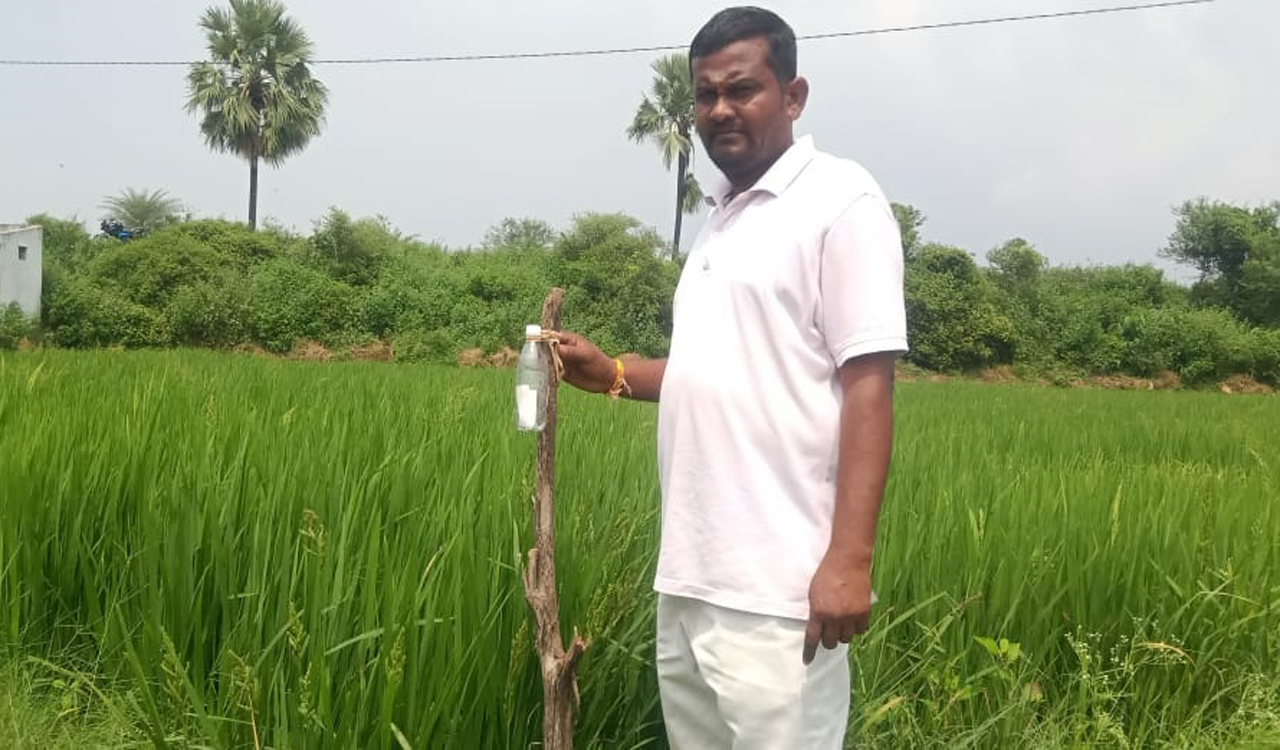A 70-year-old man, Raji Reddy, who gives the chit after writing a mantra in ancient Telugu on the paper, suggests to the farmers to keep the chit in a pot or a bottle and tie it to a stick, which should be three metres in height, and plant the stick in the field.
Published Date – 18 February 2024, 06:18 PM

Siddipet: Paddy farmers in the district, who have used various measures, including pesticides, traps and even smoke to chase rodents out of their burrows to avoid damage to their crops, are now using a chit, which they call ‘Eluka Chitti’, to keep rats away from their fields.
A 70-year-old man, Raji Reddy, who gives the chit after writing a mantra in ancient Telugu on the paper, suggests to the farmers to keep the chit in a pot or a bottle and tie it to a stick, which should be three metres in height, and plant the stick in the field. As the paddy seeds grow, dozens of paddy farmers now make a beeline to Raji Reddy’s home in Nagaram village in Akberpet-Bhumpally.
The farmers have to stand in queue for three to four hours to get their chance to meet the man. The farmers have to share their name, extent of land, village name and location in the village and survey number, which he writes on the paper apart from writing the unique mantra. Raji Reddy will give the chit to the farmers who need to go to the field straight without stopping anywhere and place the chit in the field.
Speaking to Telangana Today, a farmer from Narayanraopet, Mahankali Bikshapathi, said he was placing the chit for the last five years in his paddy field. The damage from rats and rodents was restricted by about 80 to 90 per cent without killing them, he said. Since he had four acres registered in his name and his wife’s name, Bikshapathi and his wife visit Raji Reddy to get two different chits every year.
Farmers from not only Siddipet, but from the neighbouring Rajanna-Siricilla and other districts also visit Raji Reddy, who gives the chits to not less than 100 farmers every day during the season. However, none of these farmers know exactly what is written on the paper. They pay Rs.50 or Rs.,100 for each chit. Farmers who got overwhelming results earlier, sometimes pay additionally too.


